Search Engine Optimization (SEO) is a crucial aspect of digital marketing, aiming to improve a website's visibility in search engine results pages (SERPs). SEO can be broadly classified into two main categories: on-page SEO and off-page SEO. Both types are essential for achieving higher rankings in search engine results and driving organic traffic to a website.
1. On-Page SEO
On-page SEO refers to the optimization of individual web pages to improve their search engine rankings and attract more relevant traffic. It involves various strategies and techniques implemented directly on the website's pages.
Key Components of On-Page SEO:
1. Keyword Research: Conducting thorough keyword research to identify relevant keywords and phrases that users are searching for. This helps in optimizing content around these keywords.
2. Content Optimization: Creating high-quality, relevant, and valuable content that satisfies user intent. Optimizing content includes using targeted keywords in titles, headings, meta descriptions, and throughout the content.
3. Meta Tags: Optimizing meta tags, including title tags and meta descriptions, to improve click-through rates (CTR) and provide search engines with information about the page's content.
4. URL Structure: Creating SEO-friendly URLs that are descriptive, concise, and include targeted keywords. A clear URL structure improves user experience and search engine visibility.
5. Internal Linking: Adding internal links within the content to connect related pages on the website. Internal linking helps search engines understand the site's structure and improves navigation for users.
6. Page Speed Optimization: Ensuring fast loading times for web pages to improve user experience and reduce bounce rates. Page speed is also a ranking factor for search engines.
7. Mobile-Friendliness: Ensuring that the website is optimized for mobile devices, as mobile-friendliness is a significant ranking factor for search engines like Google.
8. Image Optimization: Optimizing images by using descriptive filenames, alt text, and reducing file sizes to improve page load times and enhance user experience.
9. User Experience (UX): Providing a positive user experience by making the website easy to navigate, visually appealing, and engaging. This includes using clear calls-to-action (CTAs) and organizing content effectively.
10. Schema Markup: Implementing schema markup to provide search engines with additional context about the content on the page. This can improve the appearance of the page in search results through rich snippets.
2. Off-Page SEO
Off-page SEO refers to activities conducted outside of the website to improve its visibility and reputation on the internet. Off-page SEO focuses on building backlinks, establishing the website's authority, and increasing its online presence.
Key Components of Off-Page SEO:
1. Link Building: Acquiring backlinks from reputable and relevant websites is a crucial off-page SEO strategy. Backlinks act as votes of confidence for a website's content and can improve its authority and rankings.
2. Social Media Marketing: Engaging with users on social media platforms and promoting content can help increase brand awareness, drive traffic to the website, and improve social signals, which are factors considered by search engines.
3. Influencer Outreach: Collaborating with influencers and industry experts to promote content and build backlinks can enhance a website's credibility and reach.
4. Guest Blogging: Writing high-quality guest posts for other websites in your industry can help establish authority, build relationships, and earn backlinks to your website.
5. Online Reputation Management: Monitoring and managing online reviews, mentions, and comments about your brand can help maintain a positive online reputation, which can indirectly impact search engine rankings.
6. Local SEO: Optimizing your website for local searches, such as by claiming and optimizing Google My Business listings, can help improve visibility in local search results and attract nearby customers.
7. Content Marketing: Creating and promoting high-quality, valuable content can attract natural backlinks and social shares, enhancing the website's authority and relevance.
8. Brand Mentions: Encouraging and monitoring brand mentions across the web can help improve brand awareness and indirectly impact search engine rankings.
Conclusion
On-page and off-page SEO are both essential components of a comprehensive SEO strategy. While on-page SEO focuses on optimizing individual web pages for search engines and users, off-page SEO focuses on building authority, reputation, and relevance across the internet. By combining both strategies effectively, website owners can improve their search engine rankings, attract more organic traffic, and achieve their digital marketing goals.


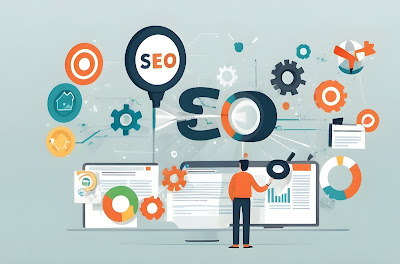
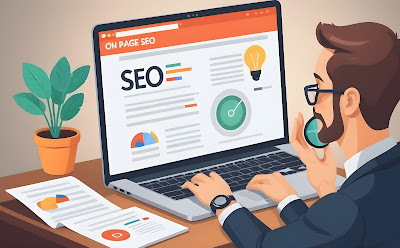

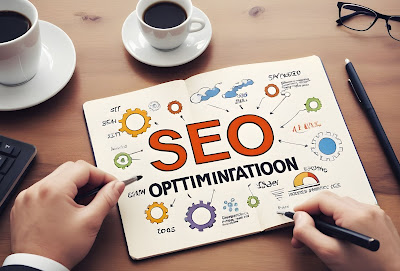
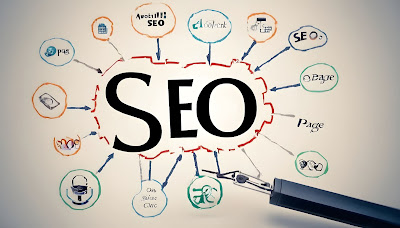
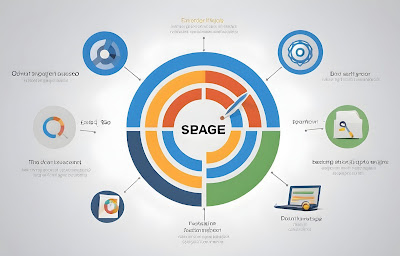
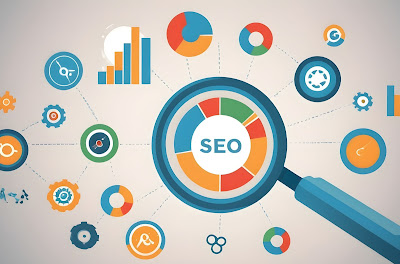
No comments:
Post a Comment